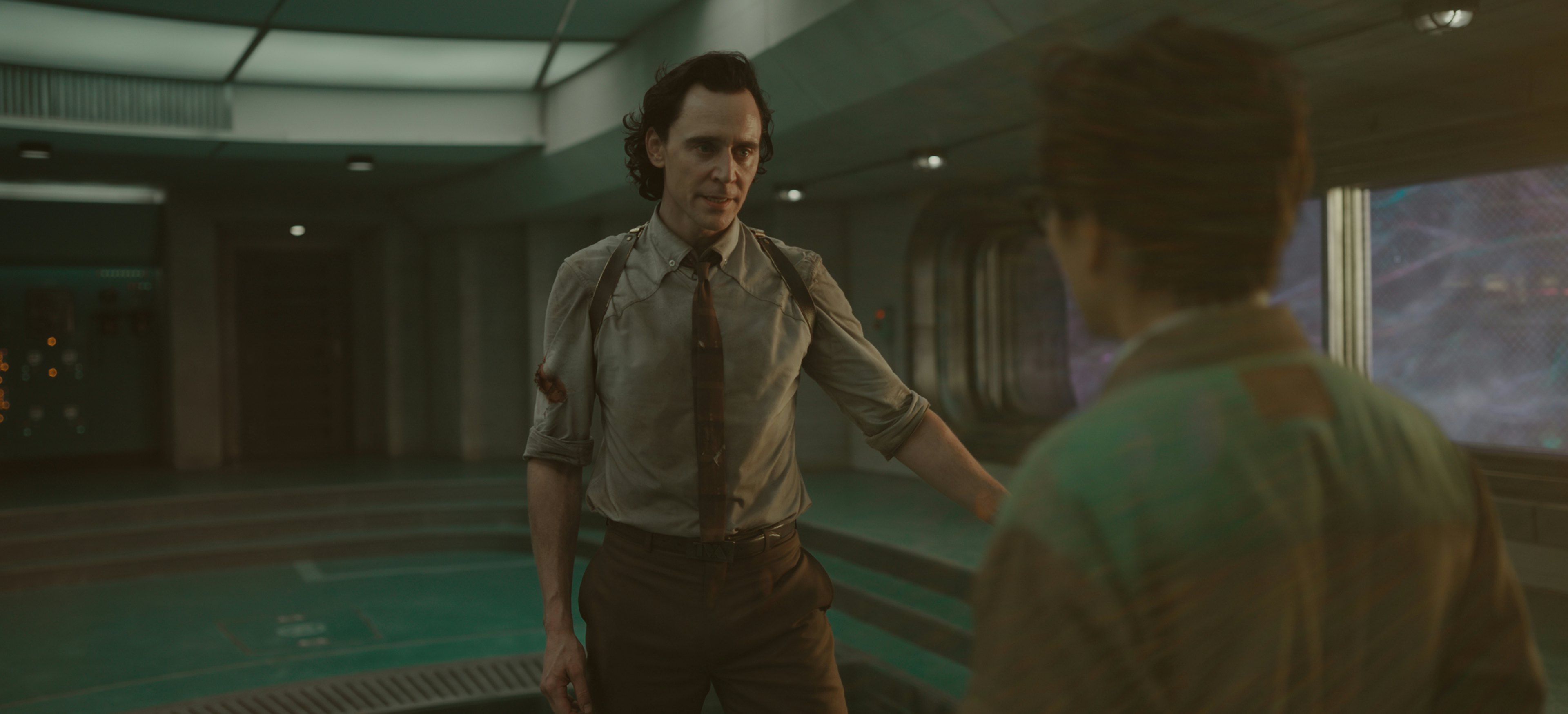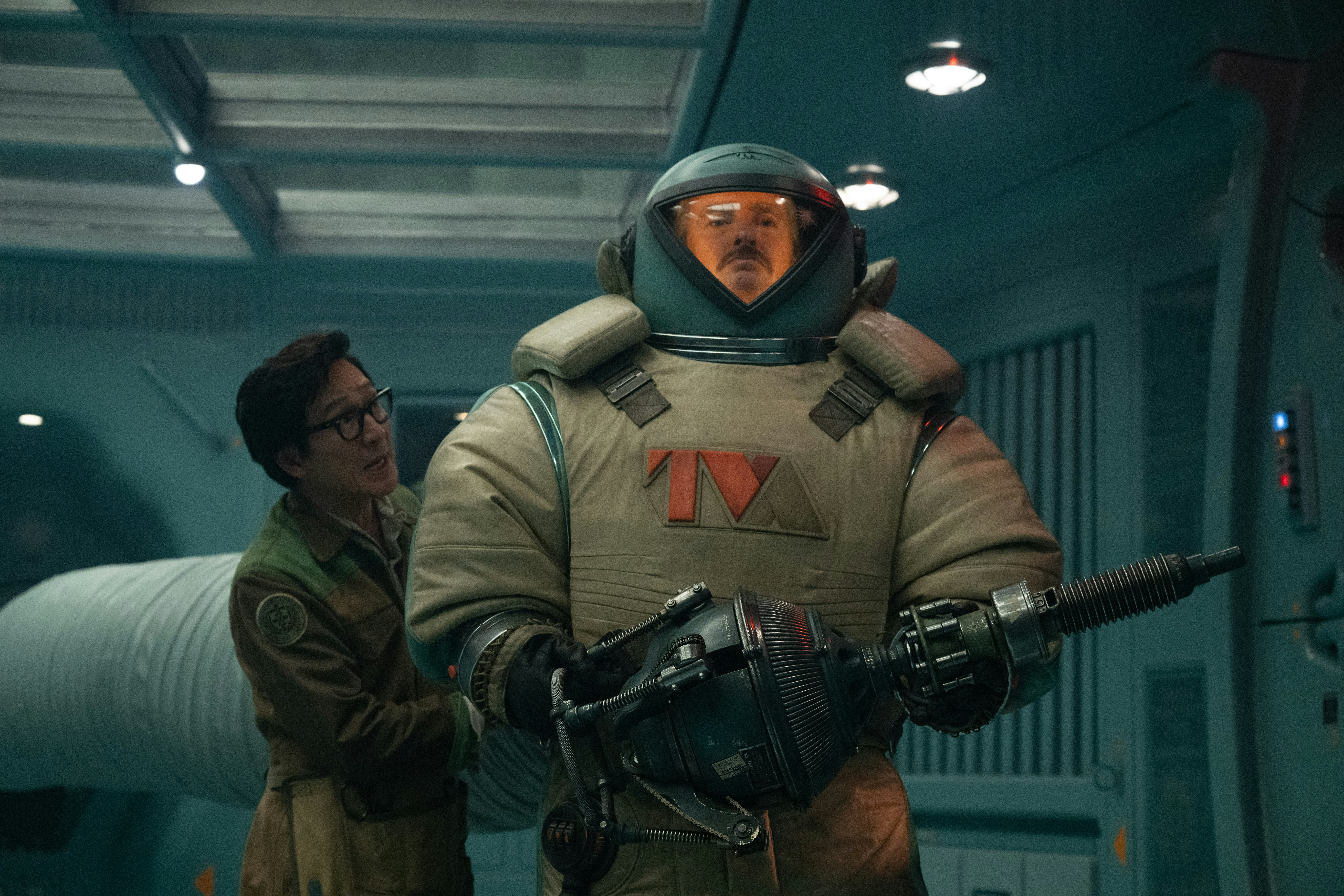
Loki is back, and not a moment too soon.
Over two years after its debut season came to an end, the Marvel Cinematic Universe TV series has returned with its long-awaited sophomore season. While Loki’s new episodes were created by a slightly different creative team than its first six installments, it doesn’t seem like the Disney+ original show has lost any of what made it special in the first place. On the contrary, Loki’s Season 2 premiere has only further cemented the series’ place as the best Disney+ title that Marvel Studios has produced up to this point.
The Loki premiere, titled “Ouroboros,” doesn’t do that by delivering a constant succession of major twists or by progressing the show’s overarching plot forward all that much, either. Instead, the episode leans into all of the things that made Loki Season 1 such a welcome addition to the MCU. In doing so, it’s revealed why Loki has always been Marvel’s best Disney+ original series.

The Loki Season 2 premiere follows its titular God of Mischief (Tom Hiddleston) as he tries to solve the time-slipping problem that has sent him painfully careening back and forth through time itself. Along the way, the episode answers some lingering questions about He Who Remains (Jonathan Majors) and the fake Time-Keepers he created to serve as the figureheads of the Time Variance Authority in his place. As exciting as some of the episode’s revelations are, though, they’re not its primary focus.
The premiere spends the majority of its runtime solving an episodic problem that may or may not matter later on, recentering Loki’s friendship with Mobius (Owen Wilson), and exploring new levels and aspects of the TVA itself. It’s through its latter efforts that the episode introduces TVA tech repair agent Ouroboros, a.k.a. O.B. (Ke Huy Quan), who has already opened the door to new areas of the TVA that weren’t explored in the show’s first season. The episode, in other words, wholeheartedly embraces the most basic procedural aspects of Loki.
As a result, it highlights all the things about the show that could allow it to run for more seasons than any of Marvel’s other Disney+ titles — namely, its likable central friendship, its ability to introduce and deal with problems in a single episode, and the quirky workplace environment that viewers seem more than happy to spend as much time in as they can. All of these elements are the kind of staple components of episodic storytelling that have allowed hundreds of shows before Loki to keep viewers’ interest and attention for longer than any other MCU TV series to date. In many ways, Loki functions the same way that a workplace TV comedy does and that is, to be clear, not a bad thing.

One of the biggest ongoing problems with many of Marvel’s post-Disney+ TV shows is that a lot of them have felt frustratingly formless and structureless. Shows like Secret Invasion, Hawkeye, and Ms. Marvel have all come across as underbaked feature film plots that were needlessly stretched out to fit Marvel’s six-episode demands. The same, however, can’t be said for WandaVision, which fans seem to generally agree still ranks as the studio’s second-best Disney+ series behind Loki. There’s a good reason for that, too.
Like Loki, WandaVision found a way to deliver episodic thrills that made each of its installments feel special and unique. That in turn made watching WandaVision in real time a whole lot of fun, and nearly three years later, it still holds up as a genuinely enjoyable, often moving, limited series. One episode into its second season, it seems safe to say that the same will remain true for Loki as well.
Indeed, if you want to know why Loki just seems to work so much better than nearly all of Marvel’s other shows, the answer is simple: It’s one of Disney+’s only MCU titles that doesn’t seem ill-suited to be a TV show. As a matter of fact, Loki relies on a lot of tried-and-true TV tropes, and that’s why it’s such a blast to watch week-to-week.







